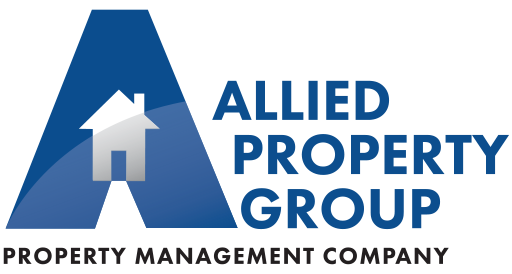By: Ana Rivero, CAM
Hurricane Andrew was a category 5 hurricane that hit South Florida in 1992. Perhaps you lived here during that time. If you did, you will never forget the catastrophic impact it had on our economy, our lives, and the community as a whole. I recall many friends leaving the Miami area and moving up North to avoid hurricanes. Those who stayed behind, especially in Homestead, felt its effects for years if not decades and some were scarred for life. In my family, my uncle, whom had a 5-acre farm in the Redlands, lost his home. We were lucky that no one from our family was hurt during the ordeal, but he had to uproot his five (5) children and move to another location. Their whole lives were forever changed.
Hurricanes are destructive! They must be taken seriously; they should not be taken lightly. We have been lucky that South Florida has not been hit with a major hurricane since Hurricane Wilma in 2005. Some would say that means that we are due! I certainly hope not, but whether we will face a major storm or not this year, we must be prepared. As a property manager, not only are we responsible for preparing our homes, we are also responsible for making sure that the condominium and homeowner associations we manage are ready. This must begin early on and in some cases, be done year round.
In this week’s podcast of Community Association Matters we had the honor of interviewing Edgar Estrada and Natalie French of the City of Doral and discussed with them the different steps that residents, associations, and businesses must take to prepare for a hurricane. Edgar is the Assistant Code Compliance Director for the City of Doral and Natalie is the Media & Emergency Management Specialist for the City of Doral Police Department.
Hurricane season runs from June 1st thru November 30th. Many of us know that there are 5 hurricane categories but not many of us know how these categories are determined. According to Miami-Dade County’s hurricane readiness guide the categories are broken down as follows:
Category 1: sustained winds of 74 to 95 mph
Category 2: sustained winds of 96 to 110 mph
Category 3: sustained winds of 111 to 129 mph
Category 4: sustained winds of 130 to 156 mph
Category 5: sustained winds of 157 mph or higher
It is important to note that, according to Natalie, most of the injuries and property damage are not caused by wind, they are caused by storm surge and flooding. Other causes of injuries in a hurricane are live wires and medical emergencies, such as heart attacks caused by the increased stress level caused by disasters.
Some of the steps that condominium and homeowner associations should take are as follows:
- Trim the trees in the community. Edgar recommends that associations hire an arborist to determine the proper amount of foliage to be trimmed and where. By trimming the trees early the association can prevent a tree from becoming “top heavy” and falling down. It also prevents dead or lose branches from becoming projectiles during a hurricane.
- Associations should also note that most municipalities do not maintain or clean the drains located in private communities. That role often times falls on associations. Condominium and homeowner associations should clean the drains in their community regularly. The City of Doral requires that drains be cleaned annually. Natalie suggests that associations check with their local municipalities because some municipalities offer debris removal after a hurricane even in private communities. The City of Doral offers this service but communities are required to sign an agreement with the city to implement this service in their community.
- Check your shutters and ensure that you have all of the screws and panels needed to properly secure the property. If you do not have hurricane shutters or panels, Miami-Dade County’s hurricane readiness guide recommends that you use 5/8” plywood to cover windows and doors.
- Remove all furniture and lose debris around the community. This includes pool and patio furniture, arm gate posts, and potted plants. If you do not have room in your community for temporarily storing these items, Natalie recommends that the association rent a storage unit for a few days.
- Individuals should have enough supplies (food, water, medicine, and personal care items) for three (3) days. Remember to buy plenty of batteries, a radio that is battery operated, and manual equipment, such as a manual can opener.
If you are going to a shelter, it is important to check the county website for information as to what you can and cannot bring. Not all shelters allow pets, so it is important to plan accordingly.
After a hurricane, Edgar urges board members and residents to be careful when hiring a contractor. Many unlicensed contractors come by communities and affected areas to take advantage of the situation. He added that most repairs require city and/or county permits despite the fact that it is an emergency repair caused by a hurricane. In addition, many contractors increase their prices dramatically during a hurricane. This is illegal and you should report price gauging to the proper authorities.
The City of Doral also has an application called Doral Alerts; this application provides weather alerts. If you live in the City of Doral, you should subscribe. It is called Everbridge and can be downloaded for free as long as you have a smart phone. Natalie stated that you should check with your local municipality to see if they offer something similar.
For additional information, please visit the City of Doral’s website and click on Public Safety to access information on emergency preparedness. I highly recommend that you listen to this podcast in its entirety by clicking here. You do not want to miss this one. Below are links to additional websites with more information on hurricane preparedness.
Miami-Dade County Emergency Management: http://www.miamidade.gov/fire/emergency-management.asp
Florida Department of Emergency Management website for public information: http://www.floridadisaster.org/DEMpublic.asp
Florida Department of Emergency Management website for businesses: http://www.floridadisaster.org/DEMbusiness.asp



